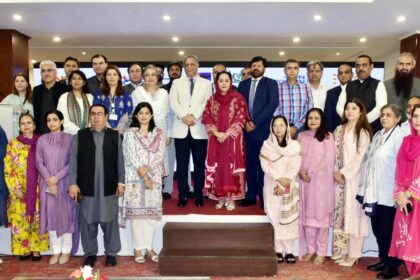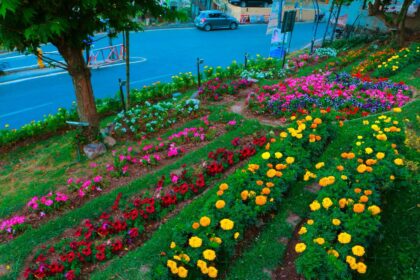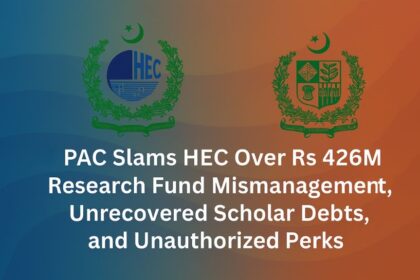Iranian Ambassador Calls for Stronger Pakistan-Iran Economic, Energy, and Cultural Partnership
Nadeem Tanoli
Islamabad: In a high-level diplomatic and policy gathering organized by the Center of Pakistan and International Relations (COPAIR) and Pakistan in the World magazine, the Ambassador of the Islamic Republic of Iran, Dr. Reza Amiri Moghadam, underscored the importance of transforming Pakistan–Iran relations into a model of regional economic cooperation, energy integration, and cultural exchange. The event, titled “Pakistan–Iran Connectivity: For Two Countries & Two Continents,” highlighted how the two neighboring nations can serve as a bridge linking South Asia with the Middle East and Central Asia.
Delivering the keynote address, Ambassador Moghadam emphasized that Pakistan and Iran share historical, cultural, and religious ties that should be translated into concrete economic results. He praised Pakistan for standing firm against external pressures and reaffirmed Iran’s commitment to expanding trade volume to $10 billion, citing immense potential in border markets, transportation links, and energy cooperation. The envoy revealed that Iran currently provides 200 megawatts of electricity to Balochistan, lighting up Gwadar, and expressed readiness to deepen collaboration in gas and oil supply despite international sanctions. He stressed that “trade and economic strength directly shape political stability and security,” calling for the activation of multiple trade corridors, including rail, road, maritime, and air connectivity.
Ambassador Moghadam also detailed ongoing initiatives, such as the opening of new border crossings at Rimdan-Gabd and Pishin, and the establishment of five joint border trade markets. He urged both governments to overcome bureaucratic hurdles and launch 24-hour customs operations to enhance border trade efficiency. The Iranian envoy highlighted that barter trade mechanisms can bypass currency constraints, while cooperation in agriculture, livestock, and construction sectors could bring mutual prosperity. He announced that Iran is ready to import up to 300,000 livestock and large quantities of meat, corn, and rice from Pakistan, alongside offering Iranian LPG, petrochemicals, and construction materials.
Tazeen Akhtar, senior journalist and Editor of Pakistan in the World, played a pivotal role in organizing and moderating the event. In his address, he highlighted the urgent need for Pakistan to realign its economic priorities toward regional self-sufficiency, noting that “petrol and electricity — two essentials straining household budgets — are available in abundance across our border.” He argued that American sanctions should not apply to humanitarian essentials like fuel and electricity and urged Pakistan’s policymakers to engage in bold decision-making for the national interest. Akhtar emphasized that regional cooperation with Iran could drastically lower living costs and strengthen Pakistan’s middle class.
Amna Munawar Awan, Chairperson of COPAIR, welcomed the Iranian Ambassador and reiterated that economic diplomacy and business-to-business engagement are key to achieving long-term stability. She noted that Pakistan and Iran can act as “anchors of stability” and “connectors between continents,” advocating for new opportunities in energy, trade, tourism, and cultural exchanges. Awan announced plans to prepare joint policy papers and organize future sessions in collaboration with national security and commerce divisions to materialize these goals.
Other speakers, including Khalid Lateef, Colonel Ahmed, and business representatives, called for creating a Pakistan–Iran Business Forum, fostering youth participation, and expanding academic and cultural linkages. Mehrin, representing Pakistan’s corporate sector, stressed the importance of showcasing Iran’s industrial and cultural achievements through documentaries and joint media productions. In response, Ambassador Moghadam praised Pakistan’s media for its unprecedented support during times of regional crisis and announced that Iran and Pakistan’s national broadcasters are now collaborating on joint television content, including cultural programs and dramas.
The gathering concluded with a strong consensus among participants that Pakistan and Iran must capitalize on their geographical proximity and shared resources to redefine their relationship through economic partnership, cultural exchange, and mutual resilience against global pressures.













